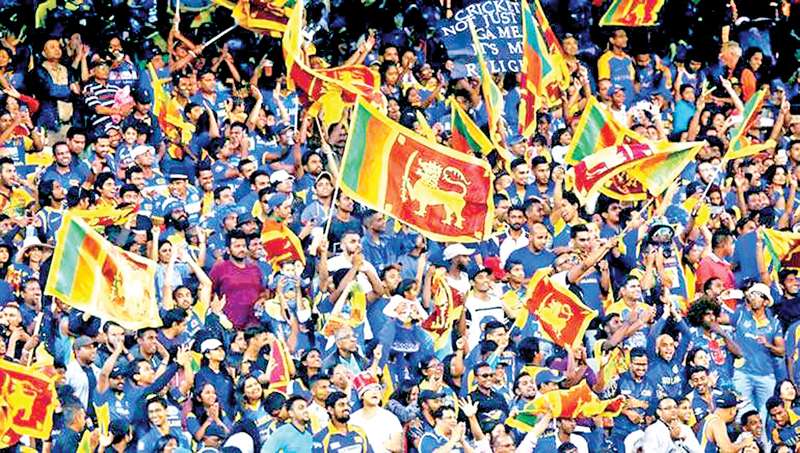 Sri Lanka’s political culture has changed from when election time was an exercise in violent blood sports. Though this does not mean that there isn’t the occasional skirmish, it means that the regulation-violence that accompanied Sri Lankan elections de rigueur, no longer obtains.
Sri Lanka’s political culture has changed from when election time was an exercise in violent blood sports. Though this does not mean that there isn’t the occasional skirmish, it means that the regulation-violence that accompanied Sri Lankan elections de rigueur, no longer obtains.
Pre-election battles in the 80s, for instance, were fought with guns. Political kidnappings were the order of the day. Nobody forgets the killings of those such as the youthful Nalanda Ellawala who was shot dead in broad daylight.
More recently, of course, there was the murder of Bharatha Lakshman Premachandra, the father of Hirunika Premachamdra, but this was already in an era in which these types of murders were becoming less the norm than the exception.
In the bad old 70s and 80s, violence was egregious and wanton. Every election campaign had to primarily factor in the violence, by planning for a ‘goonda’ squad. If there was no goonda squad, no party had a chance.
That situation doesn’t obtain today, which is not to say that all grassroots political operatives have become saints and turned meditative. There could still be the occasional skirmish, but organised violence has become essentially a thing of the past. Political parties don’t maintain active ‘goonda’ squads armed to the teeth.
This positive development needs not be scoffed at. It means that violence is no longer a concomitant to a power bid. Vying for power can be done without violence, if active politicians are willing to face the assassination squads on social media, and weather the storm of invective via fake news on the web.
VENEER
It is, as if the theatre of war, has changed. What used to be a fight with weapons on the ground, is now cyber-combat with resort to fake news and propaganda on the worldwide web. The sad part of all this is that less violence, doesn’t necessarily mean that the political culture is any less toxic. People’s reputations are destroyed at the drop of a hat.
It could be argued that politics is a dirty game, wherever the dark arts of statecraft are practised. But the fact that there are no compulsory goon squads that accompany political campaigns is some progress.
But beneath the polite veneer, the sceptre of violence always lurks. These days the internet is replete with allegations of past violence being hurled at each other, by the various contenders. Instead of henchmen of politicians killing sidekicks on the opposing side they are accusing each other of political violence in the past and sometimes the recent past. It could be said that reminders of past violence are always better than resorting to violence in the here and now.
But, violence always lurks beneath the surface of the social media banter. In Bangladesh and in England, these sentiments boiled over and transformed into bloodletting on the streets. They also boiled over into something dangerous and bloody a couple of years back in this country, during the days of the Aragalaya.
Various factions are accusing one another of past violence now, as if whoever owns the violence of that era would lose the elections. But talk of any type of violence past or future is not exactly healthy.
It has to be stressed that this election, that’s around the corner, is one of the calmest and most non-violent in the run up to it. If you’d walk along the streets of Colombo or anywhere else in the country for that matter, it would be difficult to find any sign of any election on the cards.
Apart from a few posters and billboards that adorn the sidewalks a fair distance apart from each other on the average, there isn’t any overt sign that there is a very crucial national electoral contest that’s about to happen. This surface calm is definitely an achievement. It may mean that the majority of people have already decided who they are about to elect. If there are overwhelming numbers that favour one side, it figures that there would be less tendency for anyone to foment violence on the streets.
Whoever wins this month, these trends should prevail, and there should be a peaceful transition of power post-election. Could that be guaranteed at the end of a crucial Presidential election season of this sort? The armed forces are doing an exemplary job, and judging by what’s going on, the peace could be maintained during any transition, as is being maintained now.
SIMMERING
However, the people are justifiably wary. They have seen too much gratuitous violence stem from seemingly calm and manageable situations in the recent past. Also, though there is no visible violence and there is a very encouraging calm out on the streets, the noises made on social media are shrill. There is much talk of retaliation “if this or that should happen”. There are also too many reminders of parties accusing one another of violence in the past.
It would be a tragedy if there is violence in the present arising out of willy-nilly allegations about violence in the past. It is all a matter of political culture. In Britain the political culture descended into toxicity in a series of events after a disturbed person stabbed some innocent nursery schoolchildren. The stabbings were not political in the least, but simmering tensions between immigrant communities and others came to a head due to social media rumours arising out of the aforementioned unrelated incident.
Social media in this context is a powder-keg. There is a need, therefore, to bring down the temperature of the political discourse in the run-up to this election. As stated earlier, there is an extremely positive climate of calm and quiet on the streets, which is not matched by all the posts about violence and past violence doing the rounds on social media about various political factions accusing one another of egregious violence in a different era.
If this is banter in the form of healthy discourse it is one thing, but if a dangerous powder-keg is building up as a result of these posts, that’s not an encouraging sign at all. While people are entitled to their views on any subject including past violence and determining who was responsible on those past occasions, talk about violence should never deteriorate into armed violence on the streets.
It is imperative, therefore, that the armed forces and the leaders of political parties pledge to maintain the current levels of calm, and also pledge to watch for any spontaneous emergence of violent tendencies among their grassroots mobs which may act on their own in certain circumstances, without so much as a go ahead from their political leadership.
NARRATIVES
Meanwhile, broader steps should be taken to check the toxicity of the political culture. Much of that is owed to irresponsible posts most often peddling hyperbolic and cunningly edited posts on social media. Short video clips are sometimes spliced together – all taken out of context – to form narratives about a problem or tendency that doesn’t exist.
Former political allies have become sworn enemies overnight and there is nothing as bad as political colleagues turning on each other, because they seem to know about the failings and idiosyncrasies of their erstwhile colleagues more than most.
Of course, a certain amount of thrust and parry is expected, especially in election season, and it is unreasonable to expect church-level civility when there are election campaigns going on in the run-up to a very important and decisive electoral battle.
But then, this forthcoming Presidential contest is more important than most. The stakes are higher than on most other occasions, and besides that there is something far more complex than the usual two way contest between two traditional political blocs. Even if it is a two-way contest eventually, it appears the alignments have changed and that 50 percent of votes cast for a single candidate would be unlikely. No toxic political culture – or no toxic political entity – should be allowed to create chaos, considering the potential for uncertainty in this situation.







